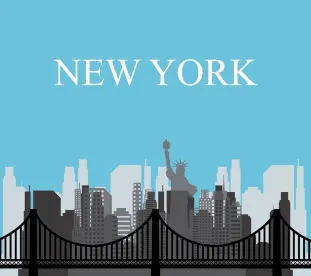As discussed in greater detail here, Governor Andrew Cuomo is poised to sign into law S.1034B/A.2681B, also referred to as the New York Health and Essential Rights Act, or the “Hero Act.”
The Hero Act has two main components. First, the state Department of Labor, in consultation with the state Department of Health, shall create an airborne infectious disease safety standard, as well as a model airborne infectious disease exposure prevention plan, and employers either must adopt the plan and standards, or create standards that meet or exceed the model. Second, employers with at least 10 employees must allow their employees to create joint labor-management workplace safety committees.
As health and safety issues are routinely negotiated between unionized employers and the employees’ collective bargaining representative, the Hero Act contains a CBA waiver provision, permitting employers and unions to explicitly agree to waive the requirements of the bill, as long as the waiver “explicitly reference[s]” the statute. Employers should therefore keep this in mind if they are actively or imminently negotiating a successor collective bargaining agreement, and even if not, such waivers could be negotiated mid-term.
Employers who negotiate such waivers with their respective unions should be cognizant of the fact that they may be obligated to adopt certain health and safety prevention plans for their non-union employees, notwithstanding the waiver as to some of its employees. Employers should also be aware of any other operative federal, state or other local health and safety guidance that may create additional obligations.
In addition, the bill also expressly provides that nothing therein “shall be deemed to diminish the rights, privileges, or remedies of any employee under any collective bargaining agreement.” In other words, if a CBA provides for rights greater than prescribed by the bill, then the CBA rights and obligations continue to govern the parties’ relationship.
We will keep you posted as the bill is expected to be signed into law in the near future. Once the Hero Act becomes law, the New York State Departments of Labor and Health presumably will begin to issue model plans on an industry-specific basis. We will also monitor whether the bill is challenged in any forum, including potentially on federal preemption grounds.




 />i
/>i
